Adam Zagajewski, A Defense of Ardor:
Some authors flog consumerist society with the aid of irony; others continue to wage war against religion; still others do battle with the bourgeoisie. At times irony expresses something different – our flounderings in a pluralistic society. And sometimes it simply conceals intellectual poverty. Since of course irony always comes in handy when we don’t know what to do. We’ll figure it out later.
I stopped in at the used bookstore again today, to sell a box of books — and stumbled on another book signed by the author…
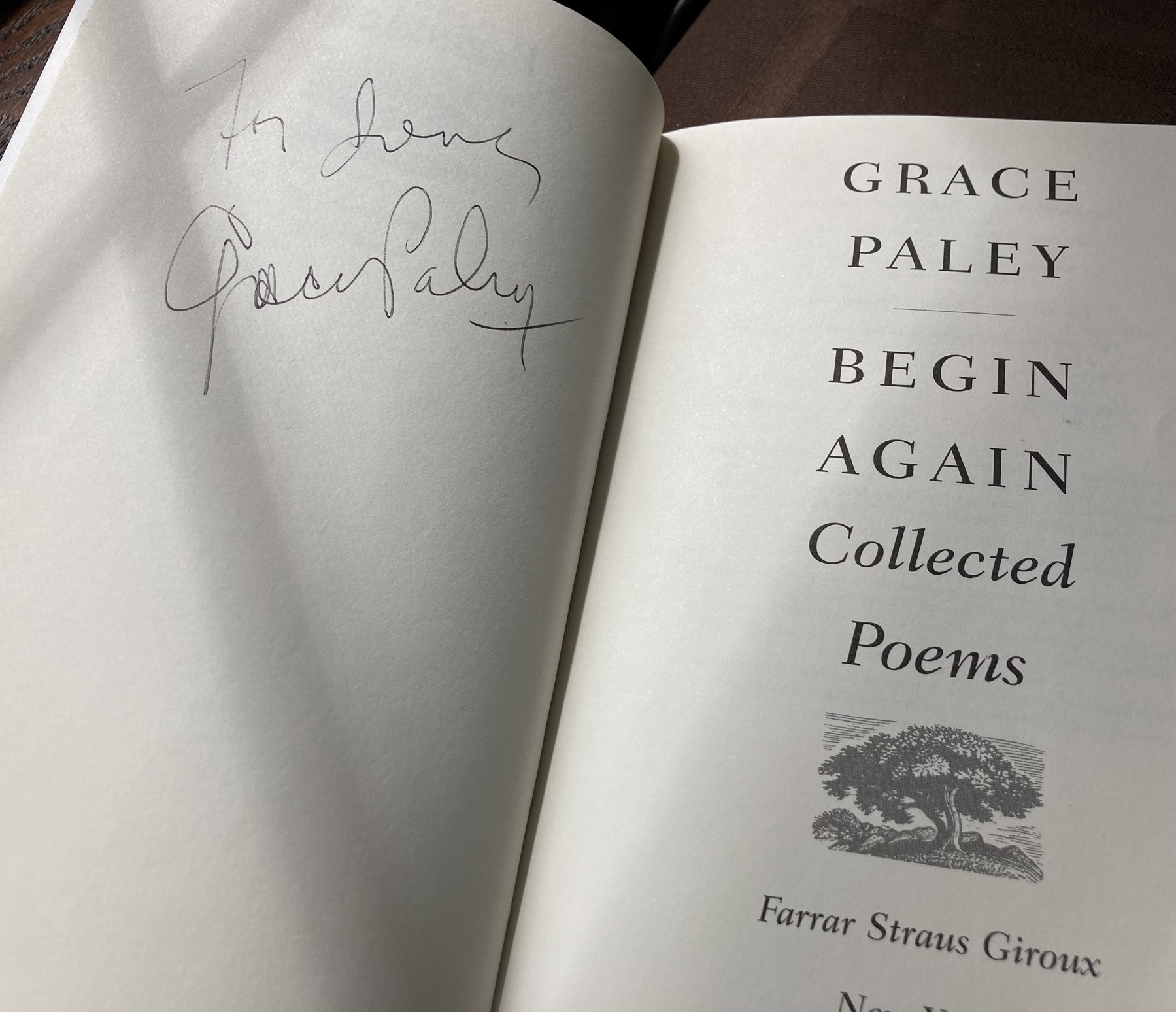
Helen Waddell, The Wandering Scholars:
There is no beginning, this side of the classics, to a history of mediaeval Latin; its roots take hold too firmly on the kingdoms of the dead. The scholar’s lyric of the twelfth century seems as new a miracle as the first crocus; but its earth is the leafdrift of centuries of forgotten scholarship. His emotional background is of his own time; his literary background is pagan, and such furniture as his mind contains is classical or pseudo-classical.
GK Chesterton, The Man Who Was Thursday:
The poor have been rebels, but they have never been anarchists; they have more interest than anyone else in there being some decent government. The poor man really has a stake in the country. The rich man hasn’t; he can go away to New Guinea in a yacht. The poor have sometimes objected to being governed badly; the rich have always objected to being governed at all. Aristocrats were always anarchists.
Jorge Luis Borges:
A man sets himself the task of drawing the world. As the years pass, he fills the empty space with images of provinces and kingdoms, mountains, bays, ships, islands, fish, houses, instruments, stars, horses, and people. Just before he dies, he discovers that the patient labyrinth of lines traces the image of his own face.
I was just remembering a funny dream I had some time ago.
I was in a room in my house (both house and room were not known to me in waking life, but it was clearly where I lived). The room was full of beautiful acoustic guitars, and they belonged to me. They were all fabulously expensive. Some were unique and custom-built, others simply rare or antique. Some were opulent, with exquisite inlays and carvings, others elegantly plain and clean. I wandered through this room, hushed and awestruck, thinking, “I can’t believe these are all mine!”
I picked one up, and tenderly began to play. I formed an open G chord, and then moved that chord form up and down the neck. It was the only chord I knew.
I was strumming a creditable 4/4 rhythm, but I couldn’t think of even one other single chord. “Hmm, I really thought I knew a few chords besides this one. Let’s see…uh…” I would contort my hand into what seemed like a “typical” chord configuration. Nope, I just kept making that same chord.
“Maybe if I try a different guitar?…” No luck. Still G.
The funny thing about the dream was that instead of finding it nightmarish, I was, even as I dreamed, amused at my sudden and nearly complete amnesia.
Many years ago, an acquaintance of mine, C., died of brain cancer. Leading up to his death, they performed a number of surgeries to try to remove the tumor. Because it was malignant there was, of course, no way to remove only the tumor. After awakening from one operation, he discovered quickly that he was no longer fluent in Mandarin. Gone, completely. This wasn’t like your high-school locker combination, or the procedure for transferring a call at a job you haven’t worked at for a decade. This was a language he’d studied for years; he’d travelled extensively in China, and had even lived there for a time. He laughed about it, eventually spinning a whole Pythonesque routine around it.
An entire, complex skill-set quite literally cut out of you. Can you imagine? I couldn’t either, until I had this dream. I only hope that if such a fate awaits me, I will face it as C. did (and as I apparently did in the dreamtime): with equanimity and humor.
Elvis Costello, King of America liner notes (Ryko reissue, 1995:
The essential difference between English and American musicians could be very crudely defined in these terms: American musicians will always ask, How do we end? English musicians only ask, How do we begin?
This just turned up in an old book.
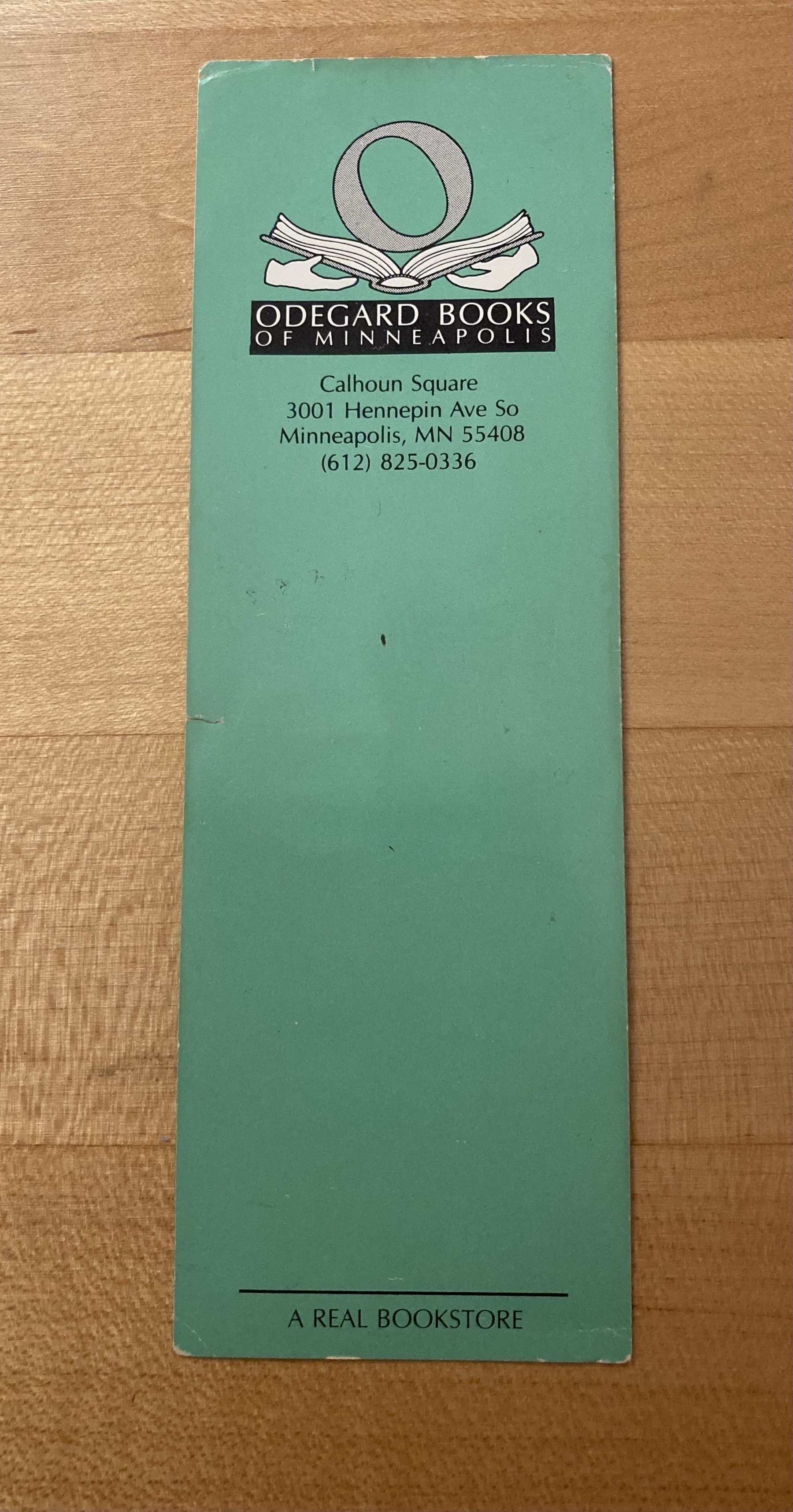
Later replaced by Borders, which also closed (sometime in the aughts?) and Kitchen Window expanded into the space. Kitchen Window, in turn, didn’t survive the pandemic…
(Original series here, with subsequent discoveries here.)
Thomas Pynchon, Gravity’s Rainbow:
Don’t forget the real business of war is buying and selling. The murdering and violence are self-policing, and can be entrusted to non-professionals. The mass nature of wartime death is useful in many ways. It serves as spectacle, as diversion from the real movements of the War. It provides raw material to be recorded into History, so that children may be taught History as sequences of violence, battle after battle, and be more prepared for the adult world. Best of all, mass death’s a stimulus to just ordinary folks, little fellows, to try ’n’ grab a piece of that Pie while they’re still here to gobble it up. The true war is a celebration of markets.
Virginia Heffernan (via):
“Let’s get out of here” addresses itself to the anxiety of an earlier age: that a would-be hero might never get off the starting block. He’d get stuck and never leave his hometown, his high-school girl or his “dead-end job,” as screenwriters once wrote. Today’s anxiety is something else. It’s that our heroes in training — ourselves or our children — won’t settle on a path at all. We’ll scatter their attention to the four winds, get lost in diversion and frivolity. More than malaise we fear distraction. More than tragedy we fear trivia. On highways we die not in high-speed chases but because we can’t stop texting.
J.A. Baker, The Peregrine:
Predators overcome their prey by the exploitation of weaknesses rather than by superior power.
Brian Eno:
Whatever you now find weird, ugly, uncomfortable and nasty about a new medium will surely become its signature. CD distortion, the jitteriness of digital video, the crap sound of 8-bit — all of these will be cherished and emulated as soon as they can be avoided. It’s the sound of failure: so much modern art is the sound of things going out of control, of a medium pushing to its limits and breaking apart. The distorted guitar sound is the sound of something too loud for the medium supposed to carry it. The blues singer with the cracked voice is the sound of an emotional cry too powerful for the throat that releases it. The excitement of grainy film, of bleached-out black and white, is the excitement of witnessing events too momentous for the medium assigned to record them.
WS Merwin, Introduction to Second Four Books of Poems:
…poetry like speech itself is made out of paradox, contradiction, irresolvables … It uses comparision to speak of what cannot be compared. It cannot be conscripted even into the service of good intentions.
Judith Shklar, Ordinary Vices:
Far from being an amoral free-for-all, liberalism is, in fact, extremely difficult and constraining, far too much so for those who cannot endure contradiction, complexity, diversity, and the risks of freedom.
J.A. Baker, The Peregrine:
To be recognized and accepted by a peregrine you must wear the same clothes, travel by the same way, perform actions in the same order. Like all birds, it fears the unpredictable. Enter and leave the same fields at the same time each day, soothe the hawk from its wildness by a ritual of behavior as invariable as its own. Hood the glare of the eyes, hide the white tremor of the hands, shade the stark reflecting face, assume the stillness of a tree. A peregrine fears nothing he can see clearly and far off. Approach him from across open ground with a steady unfaltering movement. Let your shape grow in size but do not alter its outline. Never hide yourself unless concealment is complete. Be alone. Shun the furtive oddity of man, cringe from the hostile eyes of farms. Learn to fear. To share fear is the greatest bond of all. The hunter must have the quivering intensity of an arrow thudding into a tree. Yesterday is dim and monochrome. A week ago you were not born. Persist, endure, follow, watch.
I was thinking about the early days of blogging, and remembered an old post from 2003. I reposted it a few years ago, but I took my archives offline earlier this year. (I’ve been republishing them gradually & selectively.)
Here is Blogs: A Brief Reader’s Guide, dead links & all.
Birthday week acquisitions. Not a bad haul. (Over half were used bookstore serendipities.)
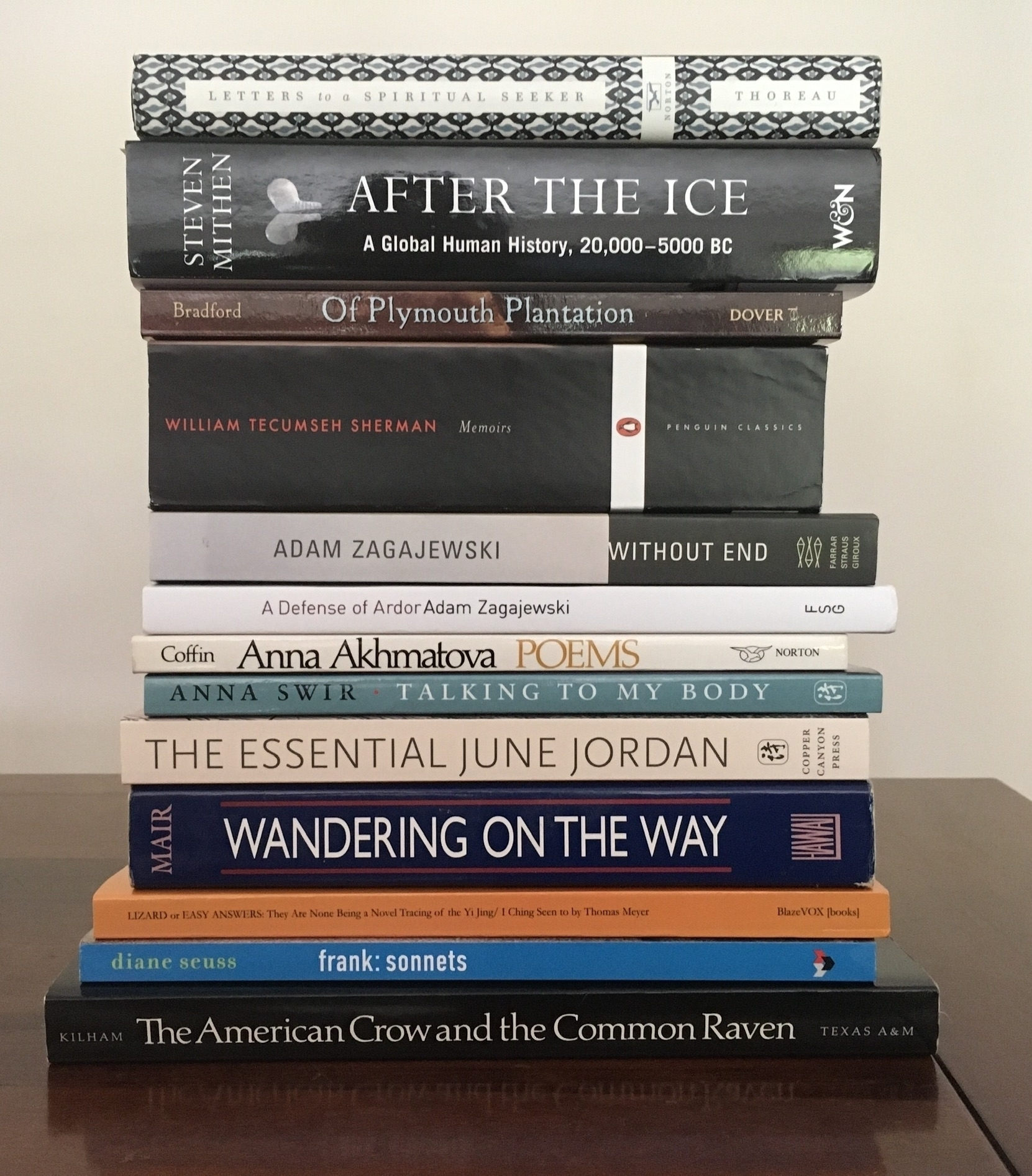
It’s one thing to find a book signed by the poet in a used bookstore—
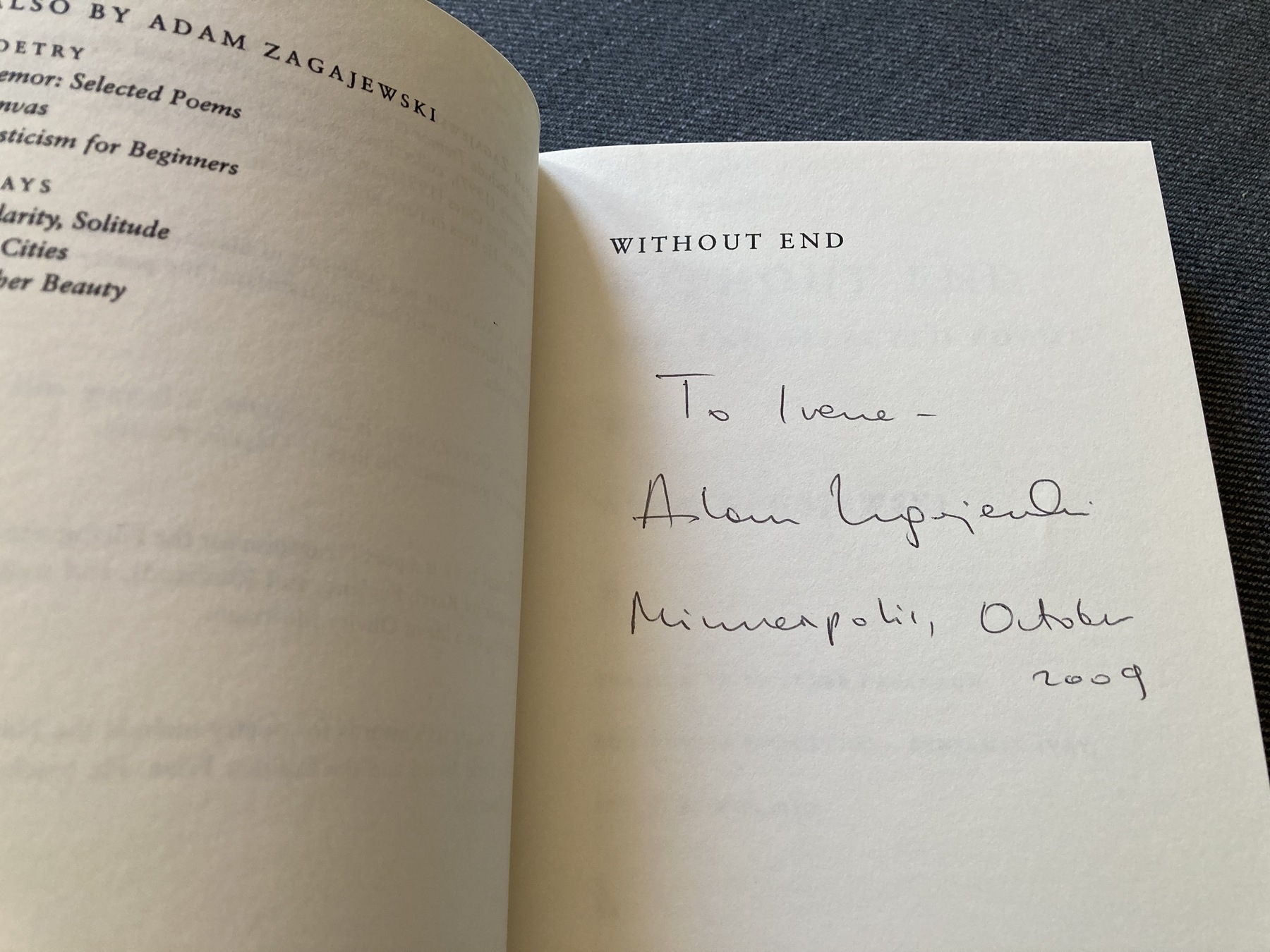
—but then to notice there’s a broadside tucked inside, signed by that poet?…
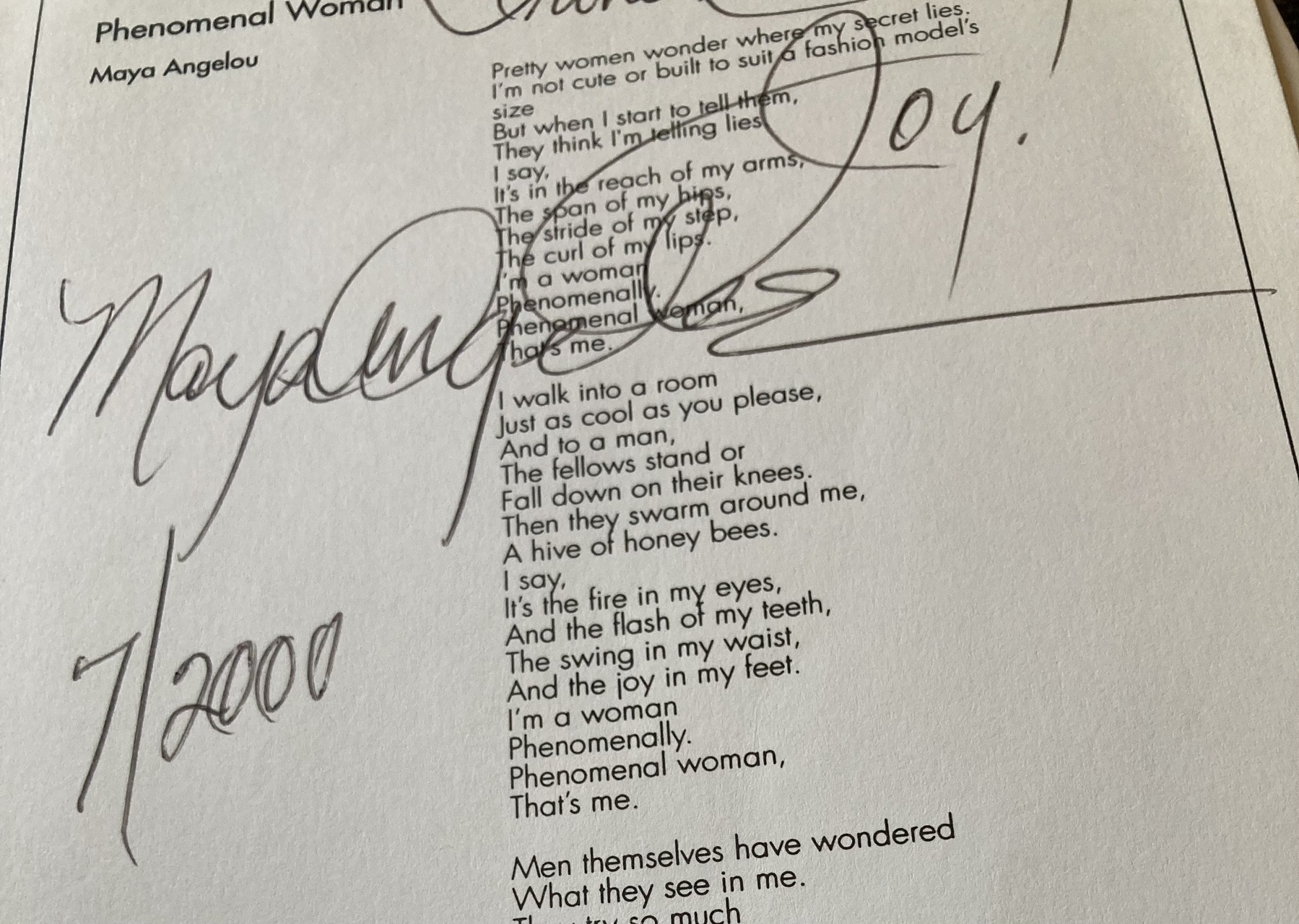
And all for ten bucks?
Happy Birthday to me.
Thirty-five years with this machine.
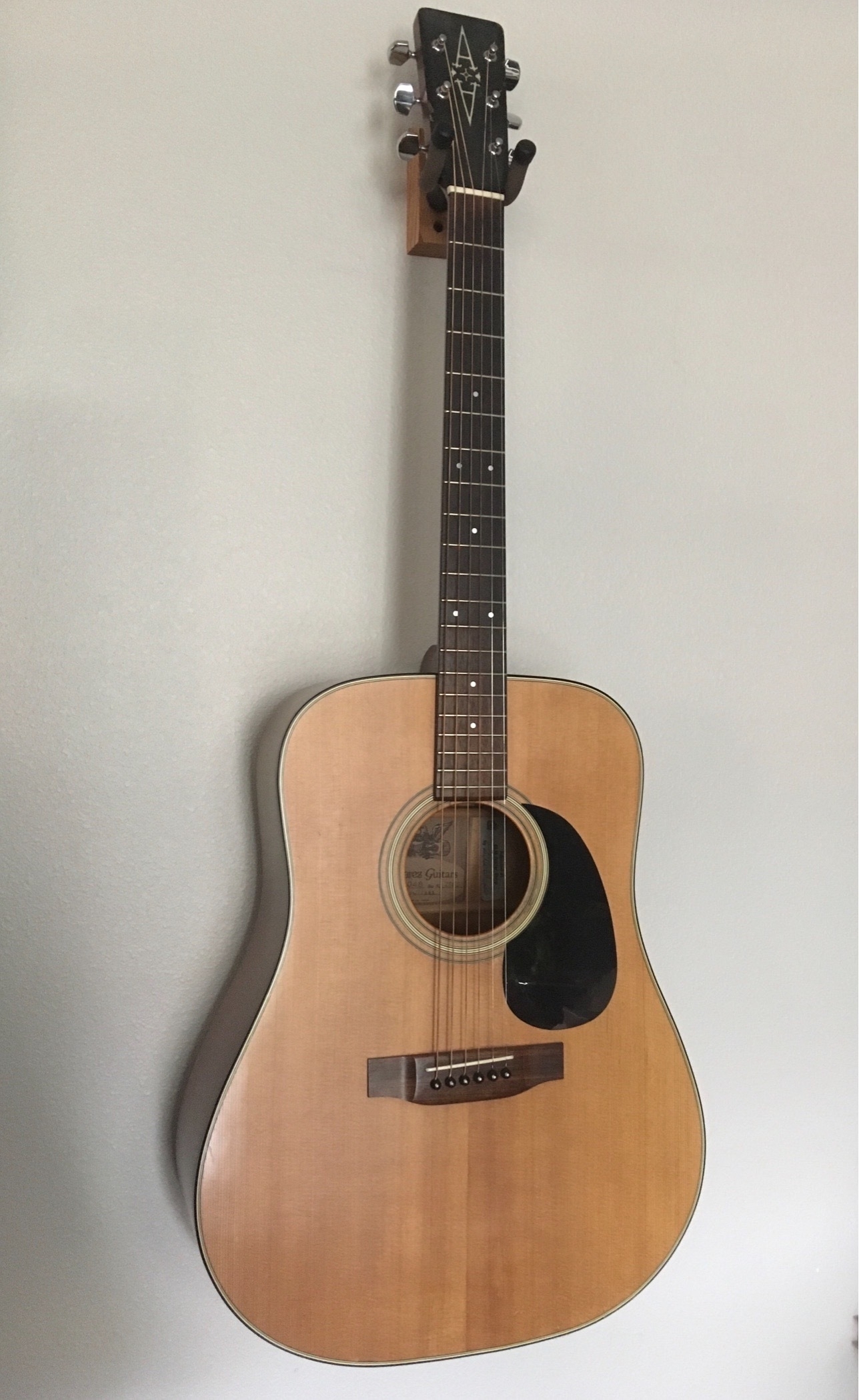

Phrasing
Just now, over my morning coffee, I’ve been listening to an album from the 70s, deep in the Era of LPs. Fortyish minutes long, twenty-odd minutes to a side.
I know the topic was flensed to death all through the 80s and 90s by the pro-LP mobs on the A-side and the pro-CD thugs on the B – warmth & loudness, shrunken cover art, longevity & durability, blablabla. But the only thing that I ever really thought about was how LPs were comprised of two parts while CDs were one long arc.
And it occurs to me that even now, after nearly three decades of CD hegemony, I still have not quite gotten used to the longer phrasing. I like to feel the pause between Act 1 and Act 2, even if I don’t get up from the couch to flip the platter or anything so quaint and sepia-tinted as that.
Thomas Pynchon, Gravity’s Rainbow:
In one of these streets, in the morning fog, plastered over two slippery cobblestones, is a scrap of newspaper headline, with a wirephoto of a giant white cock, dangling in the sky straight downward out of a white pubic bush. The letters
MB DRO
ROSHI
appear above with the logo of some occupation newspaper, a grinning glamour girl riding astraddle the cannon of a tank, steel penis with slotted serpent head, 3rd Armored treads ’n’ triangle on a sweater rippling across her tits. The white image has the same coherence, the hey-lookit-me smugness, as the Cross does. It is not only a sudden white genital onset in the sky — it is also, perhaps, a Tree…
Last, next.
88: Wednesday Blue
89: Great Lakes (Michigan)
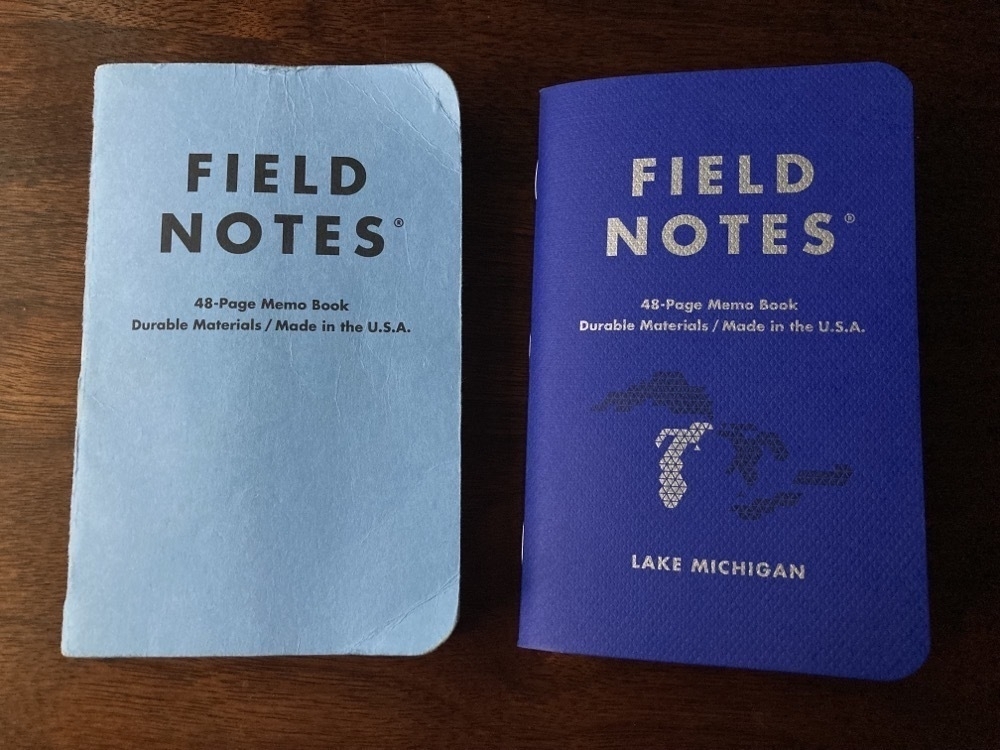
Starting with Lake Michigan, since I was born about a thousand feet from its shore. I love Superior, but I’ve always thought of Michigan as “my” lake…
🔗 Ken Knabb’s situationist archive is now housed in the Beinecke Library at Yale.








